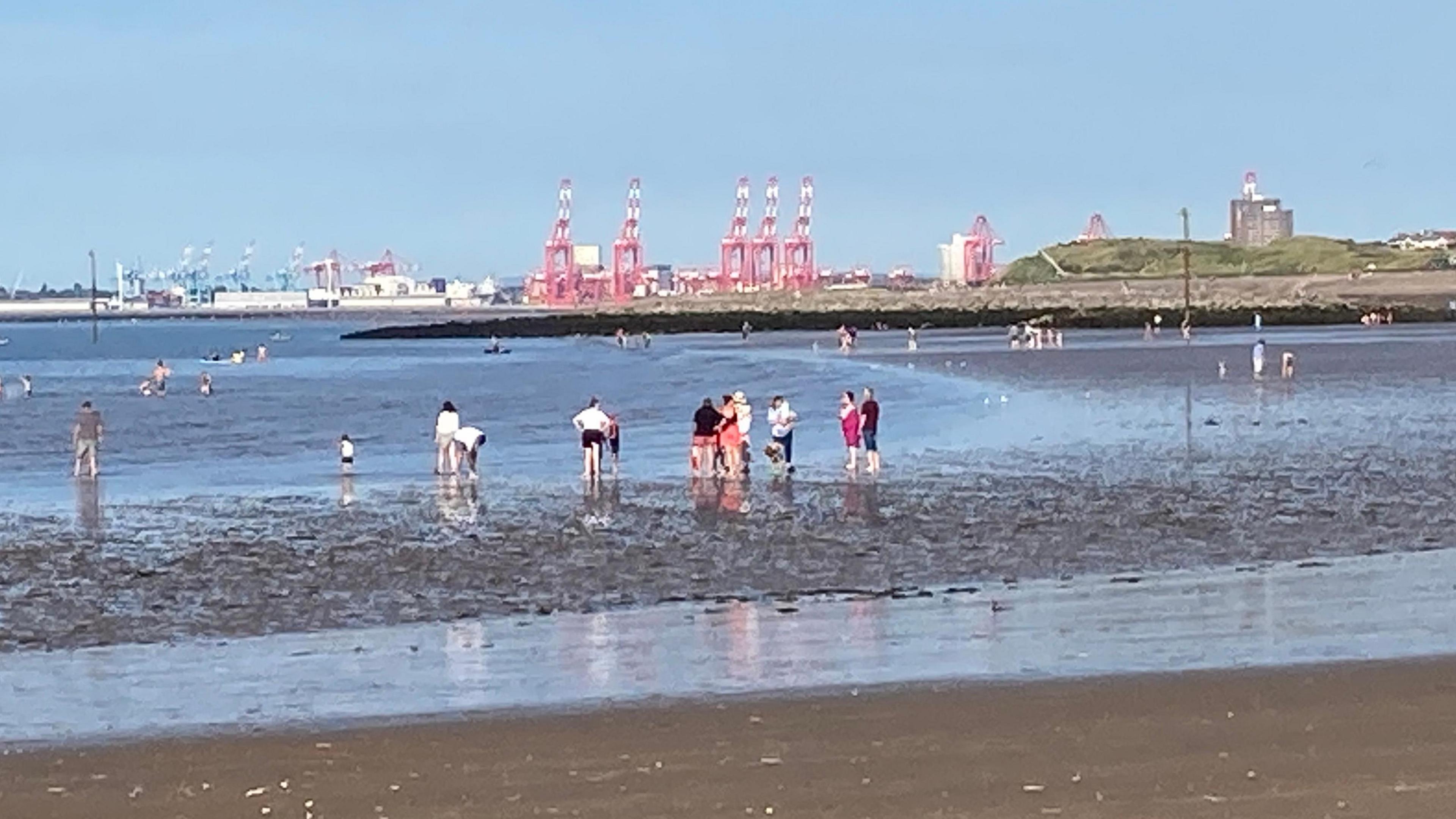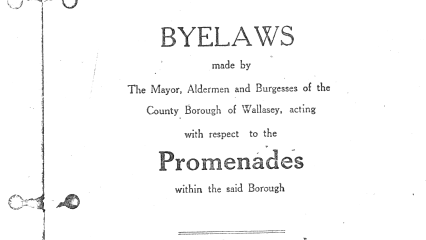Council set to scrap 90-year-old carpet beating law

Beating carpets on a stretch of Wirral coastline has been illegal since 1935
- Published
A 90-year-old ban on beating carpets on a seashore is among a raft of byelaws to be scrapped by a council.
Various types of "nuisance", including "sounding a noisy trumpet or wantonly singing", were outlawed in a 1935 byelaw covering a 3.7-mile (6-km) stretch of Wirral coastline from Meols to New Brighton, and punishable by a hefty £5 fine.
Wirral Council wants to repeal the byelaw because it also bans people from using anything but their own two feet on the path.
The route has become popular with cyclists and horse riders over the years, and the council says it needs to change the outdated restrictions to suit the times.
Among the acts outlawed to this day are making any "violent outcry" or "inciting any dog to bark", "throwing missiles" and "building or constructing upon the promenade any booth, tent, bathing machine, shed, stand, stall, show, exhibition, swing, roundabout or other like erection or thing".
Anyone committing any of the offences could have found themselves facing a fine equivalent to about £300 in today's money.
Have you been breaking the law in Wirral?
New Brighton ward councillor Paul Martin told the BBC he had not been aware beating a carpet was outlawed all this time, but had never done it anyway.
But he added he was "completely supportive of the opportunity for people to sound their trumpets along the promenade".
"That's something that's been holding New Brighton back as a resort for as long as I can remember," he joked.

The coastal path covered by the byelaws runs from Meols to New Brighton in Wirral
The main purpose of repealing the old rules concerns cyclists and horse riders.
But the laws are not enforced in practice, and Wirral Council's own website advertises the Route 56 cycle route, which includes some of the stretch covered by the regulations.
The council is now planning to scrap the restrictions in the 1935 byelaw "as they are outdated and no longer suitable – or if they are still relevant, they are now already covered by other legal acts and orders".
The BBC understands that the council cannot put up safety warnings or other public information signs relating to cycling and other modes of transport while it still technically prohibits them from being used along the stretch.

The various rules were contained in a byelaw passed in 1935
While cyclists and horse riders and mobility scooter users are unlikely to have been worried about being pulled up by the local bobby for using the promenade, they will soon no longer be outlaws in the eyes of the law at all if the repeal goes ahead.
However, hawkers, beggars, people with barking dogs, those with a tendency to put up tents, uproot flower beds, or indeed sound noisy trumpets should be warned that they could still find themselves on the wrong side of the Public Order Act, The Highways Act and various other existing national laws.
Council documents on the planned changes explain that carpet beating is not an offence under any other law, and that the rule is now "obsolete" anyway.
And there is no longer a need to ban men and women from using each other's conveniences, as there are no longer any public toilets left along the route.
A consultation on the repeal of the byelaws runs until 22 September.
Get in touch
Tell us which stories we should cover on Merseyside
Listen to the best of BBC Radio Merseyside on Sounds and follow BBC Merseyside on Facebook, external, X, external, and Instagram, external. You can also send story ideas via Whatsapp to 0808 100 2230.
